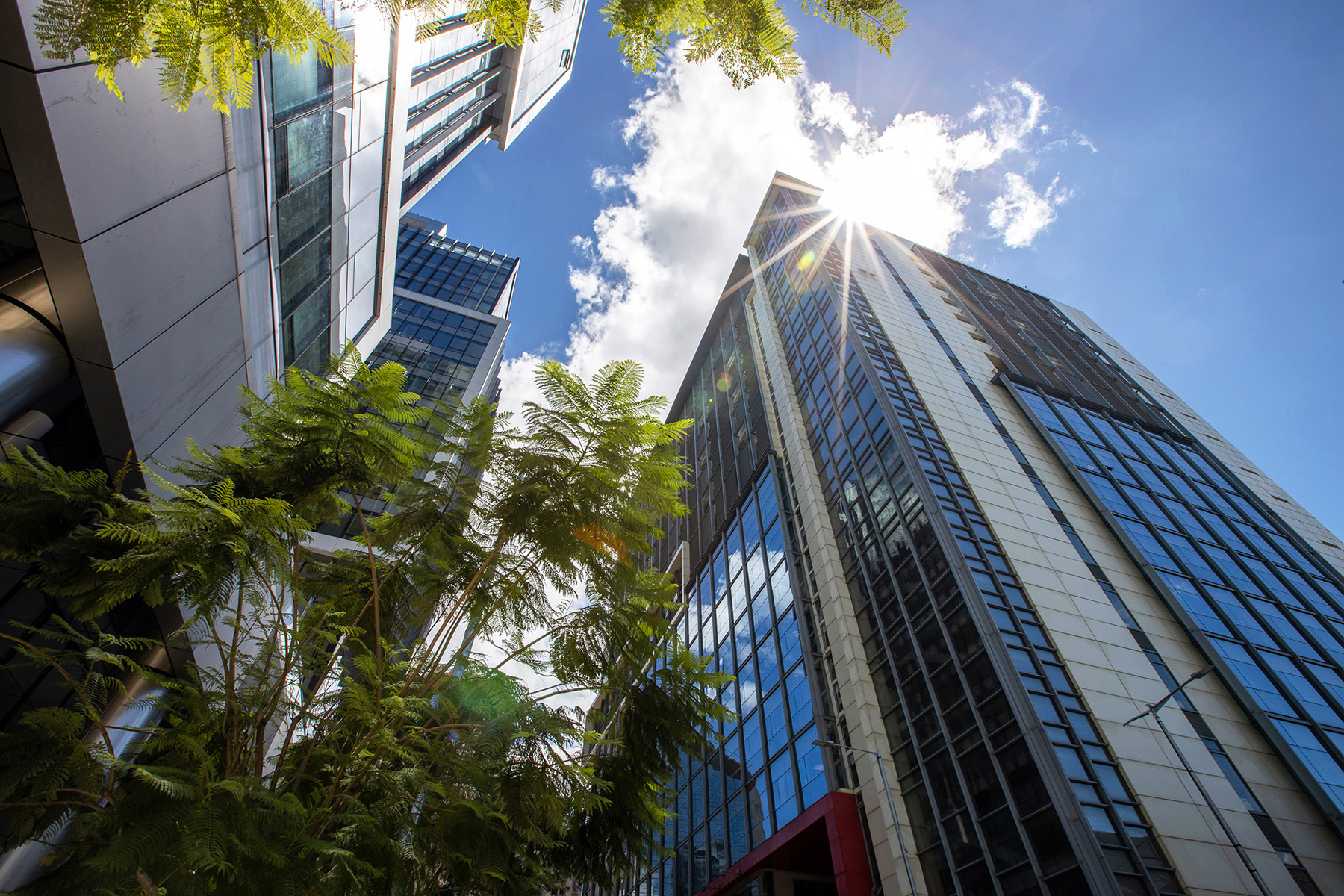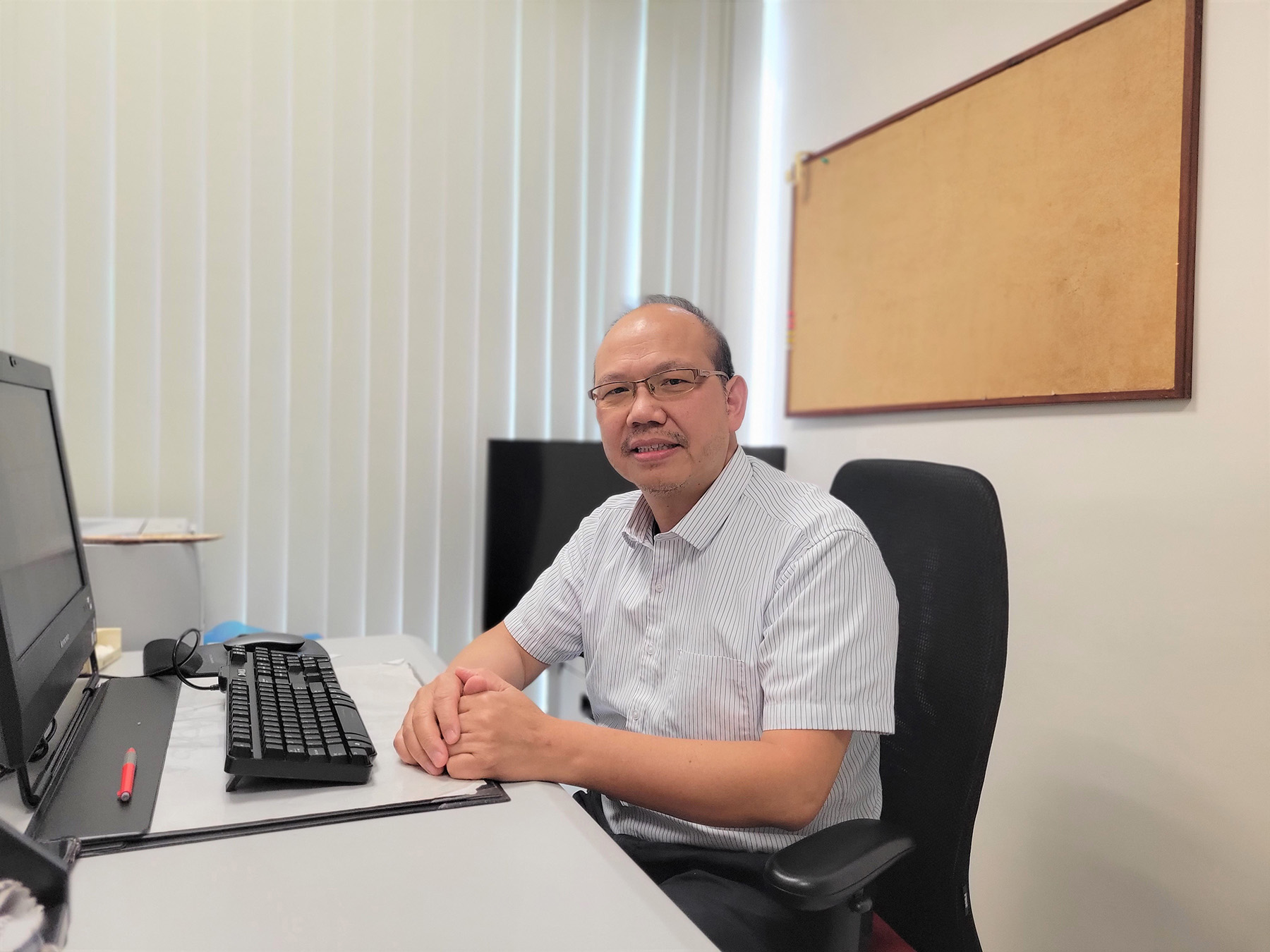Highlights
MPU’s Research on Smart Building Management Uplifts Lives of Urbanites
 Macao Polytechnic University offer insights on smart building management through interdisciplinary research
Macao Polytechnic University offer insights on smart building management through interdisciplinary research
Smart buildings, being considered as the fundamental infrastructure of a city, integrate smart technologies into design, management, environment, communication, energy conservation, convenience and community development. They play a pivotal role in shaping our ecosystems, beautifying our urban environment, and uplifting the quality of life. Recent studies of Macao Polytechnic University (MPU) offer insights on stakeholders’ perceived importance and acceptance of various smart and sustainable building features. The research results benefit the efficiency of building design, construction and management in a sustainable manner for the betterment of people and the planet.
Coexistence in Ecosystems through Eco-Building Design
Global smart city development drives the rise of smart buildings. Taking advantage of urban dynamics, including land development and city revitalisation, city planners incorporate innovative technologies such as big data, IoTs and AI into buildings to achieve reduction of both energy consumption and ecological impact. Eco-architecture features the transformation from the conventional and static structure to the intelligent and resource-efficient configuration. Properly-designed smart buildings enhance security, comfort and convenience, which are the prerequisites for good health, well-being, productivity and the creation of an ecology mutually beneficial to human beings and the nature, facilitating liveability and environmental sustainability.
The entire life cycle of a smart building, from construction and modification to operation and maintenance, shall be carefully planned in the early stage of design to ensure a building’s sustainability. MPU’s research studies investigated occupants and building professionals’ perceptions of the importance of smart building features to guide optimisation of management system design and technology applications in a way that achieves greater social and environmental impacts. The findings provided insights and constructive advices to the building professionals to understand occupants’ needs by showing the importance of incorporating diverse building stakeholders’ perspectives into the design process. Through continuous enhancement of design to meet human priorities alongside technical performance and compatibility, the automated, low-energy smart building system has become exemplars for sustainable urban development.
Prioritising Human Needs in Smart Building Design
Across the three research studies conducted by Professor To Wai Ming from the Faculty of Business at MPU in collaboration with the University of Hong Kong, the Hong Kong Polytechnic University and Keele University (UK), about 1,500 building users and professional respondents were surveyed respectively. The survey results indicated that the top three smart devices that building users tended to focus more on were intelligent security systems, followed by responsive fresh air supply, as well as lifts and escalators. On the other hand, professionals gave priorities to the ease of operation, safety and recovery functions of smart devices, while convenience, ease of use and practicality became the key factors that impact on professionals’ decisions on what smart sustainable devices shall be equipped.
“Life is architecture and architecture is the mirror of life”, says the world-renowned architect Pei Ieoh Ming. Designing with human factors in mind can boost the quality of life and optimise broader environmental and social benefits. The research findings highlighted the value of stakeholder diversity in design to balance priorities in every phase taking construction cost, user experience and environmental protection into consideration.
Advancing Sustainability Through Research Excellence
Professor To Wai Ming has been recognised among the top 2% of top scientists worldwide in 2021 for his highly cited research on sustainability and the environment. He was also rated as one of the world’s top 10% reviewers of academic papers by Publons, confirming his fruitful achievements in academic research. As a national expert of the Ministry of Science and Technology of the People’s Republic of China in environmental management, Professor To’s over 200 publications in impactful journals focus on finding solutions through research on sustainable development. His research excellence demonstrates the impact of MPU scholars, whose world-class insights help to chart a path towards Macao’s transition to a green economy.
The integration of innovative technologies into green building clusters enables resource efficiency and clean energy utilisation at an urban or even regional scale. This could advance health outcomes, enhance occupant satisfaction and foster stronger community connections at the societal level by transforming how millions live and work, Professor To stated. In light of the high-tech and economic position of the Guangdong-Hong Kong-Macao Greater Bay Area, cross-regional studies are being conducted to promote the vigorous development of smart infrastructure, promoting the adoption of smart buildings to minimise carbon emissions.
MPU's Role in Promoting Sustainable Success in Macao and Beyond
The world is paying increasing attention to global green shift, thus actively seeking possible solutions for environmental sustainability and the development of smart cities. In Guangdong-Hong Kong-Macao Greater Bay Area, relevant policies have been implemented to prioritise the creation of a liveable and sustainable metropolis. To support this goal, the Macao SAR government projected the vision of creating a liveable smart city. Powered by advanced technologies, intelligent community management is to be realised for the sake of higher level of residential satisfaction and diversification of Macao's economic development.
MPU’s steadfast dedication to sustainable development pairs with its expertise in technological innovation, as evidenced by its successful global applications of patented products in terms of technology transfer. Recently, MPU has been organising seminars and competitions such as the seminar on “Smart Community-Infrastructure and Application Technology”, the lecture series by Sino-Portuguese scholars, Macao-wide IT competitions, and the seminar on “the Role of IPv6 on 5G Development”. These initiatives illustrate MPU’s key role in steering not only Macao but also other regions on the path towards sustainable triumph.
The full articles of relevant research at MPU:


